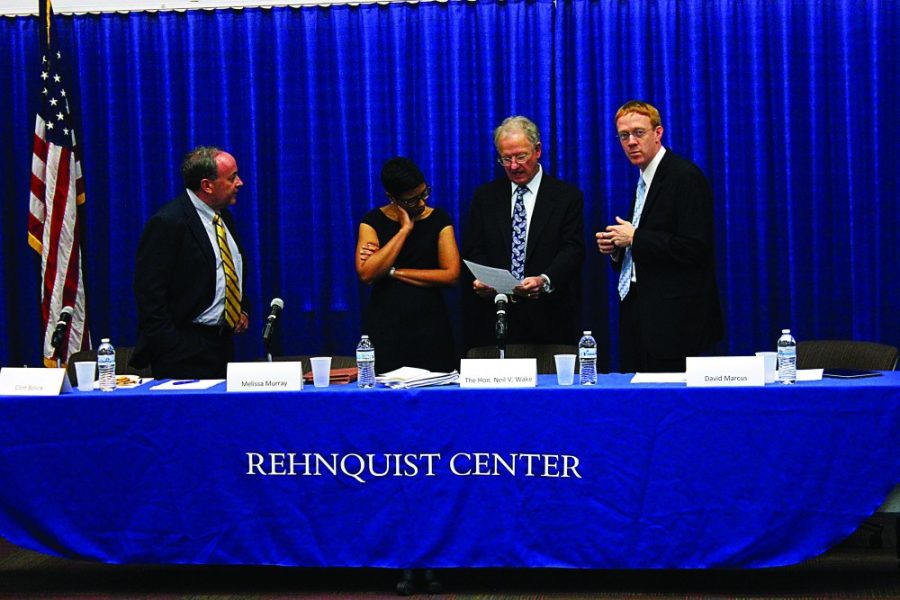A panel of law experts discussed recent Supreme Court cases to an audience of about 100 people on Monday afternoon.
The event, at the James E. Rogers College of Law, was the 15th Annual Constitution Day Supreme Court Review, held to celebrate the birthday of the Constitution of the United States.
No cake or balloons — instead panelists Clint Bolick, vice president for litigation at the Goldwater Institute; Melissa Murray, professor of law from the University of California at Berkley; and U.S. District Judge Neil V. Wake, discussed their opinions on four cases. The cases — American Express Co. v. Italian Colors Restaurant, United States v. Windsor, Hollingsworth v. Perry and Shelby County v. Holder — were all cases for which a decision was made in the last term of the U.S. Supreme Court.
In the first case, the Supreme Court decided that the federal government must enforce mediation agreements between large companies and smaller merchants. This case stood out from the others, according to Murray.
“All of the other cases have clear social justice implications,” Murray said.
The second case established that Section 3 of the Defense of Marriage Act, which defines marriage strictly as a heterosexual union, is unconstitutional. This gave legally recognized same-sex couples the same rights as heterosexual couples. While he said he fully supports gay marriage, Bolick disagreed with the court’s decision.
“This is the quintessential state issue, and the federal government should not interfere with it,” Bolick said.
In the third case, Hollingsworth v. Perry, the court ruled that the sponsors of Proposition 8, of California couldn’t legally appeal the decision to repeal the proposition without state officials’ support. This decision also had the consequence of repealing Prop 8 and legalizing same-sex marriage in California.
The final case, Shelby County v. Holden, nullified the Voting Rights Act of 1965 until a new system of deciding jurisdictions is created. The court ruled that section 4b of the Voting Rights Act, which contains the data used to decide which jurisdictions are subject to voting regulations, is unconstitutional.
One attendee, local attorney Gary Wolf, was particularly interested in this case and said he thinks the Supreme Court got their decision “half right.”
“Any mistakes made on the Voting Rights act has systemic consequences,” Wolf said. “A portion of their decision could have been much more mild, because any burden on the states is a small price to pay to make sure that voting rights aren’t interfered with.”
Wake said he tried to address his comments to law students based on what he thought would be interested to them.
Jim Carlson, a first year law student, said he appreciated seeing “relevant cases that are fresh off the press” discussed at the event.
“There’s a generational change to how some of those issues [gay marriage] are changing in the country,” Carlson said, “and they might be gaining more acceptance.”
– Follow Jazmine Foster-Hall @Jazz_Foster









